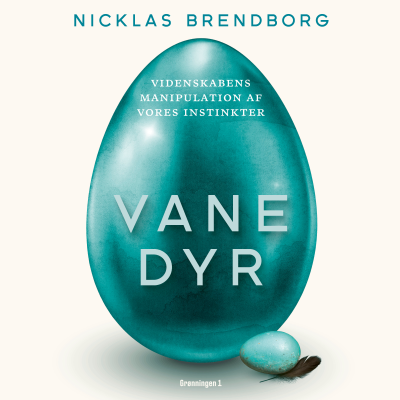
Listen to Homo Sapiens
Podcast by DBR
education related stuff. 1)History 2)Polity 3)Geopolitics 4)Economics 5)Various case studies on above subjects
Start 60 days free trial
99,00 kr. / month after trial.Cancel anytime.
All episodes
42 episodesArticle 15: Prohibition of discrimination on grounds of religion, race, caste, sex or place of birth. Article 16: Equality of opportunity in matters of public employment. Article 19: Protection of six rights regarding freedom of (speech and expression, (ii) assembly (iii) association, (iv) movement (v) residence and profession. Article 29: Protection of language, script and culture of minorities. Article 30: Right of minorities to establish and administer educational institutions.
Paleolithic Maesolithic NeoLithic Metal age
Threat to Federalism: 1)Systematic 2)Non Systematic · Economic · political Discretionary Grants: Article 282 empowers both the Centre and the states to make any grants for any public purpose, even if it is not within their respective legislative competence. Under this provision, the Centre makes grants to the states. Statutory grants: under Article 275 (both general and specific) are given to the states on the recommendation of the Finance Commission. In post-independent India, the Centre, on several occasions, has used its powers to dismiss or use the Governor to intimidate democratically elected governments. During the Emergency, education was moved to the Concurrent list which was until then a State subject under the constitutional division of responsibilities. However, the adverse changes to federal relations at present are more systemic. To understand what has changed, at the risk of repetition, there has been increasing centralisation in resource allocations and welfare interventions. The gap between the revenue that State governments are allowed to generate and the expenditure that they are expected to incur has been widening, particularly with the implementation of Goods and Services Tax (GST). The shortfall of GST this year and the Centre’s lackadaisical response to demands for compensation by State governments are again known. We can also see the consolidation and expansion of a few big business groups seen to be close to the BJP, probably at the expense of smaller players. On the one hand, the Centre has sought to insulate Indian big business from global competition by choosing not to enter into the Regional Comprehensive Economic Partnership (RCEP), but has eroded the power of small businesses through support for GST and the call for a single national market. Clearly, bigger players are more likely to benefit from a removal of State-level barriers to trade at the expense of smaller regional players. This re-calibration of State-capital relations works against smaller entrepreneurs and entrepreneurship. Institutional transgression The second challenge is in the use of executive and legislative aggression. Central institutions are increasingly weakening the policy levers of State institutions. Institutions such as the Income Tax Department, the Enforcement Directorate and the National Investigation Agency are being used to intimidate opponents. Appointments are not untouched either. For instance, the Centre has been meddling with the appointments of vice-chancellors in universities funded and run by State governments. Direct transfers to beneficiaries of welfare schemes bypassing States are also contributing to this dynamic. Further, as recent events suggest, the Centre is increasingly ignoring elected representatives of State governments, holding meetings with State secretaries and district collectors on issues that are primarily under State control. An example was a recent meeting by Minister of Education Ramesh Pokhriyal Nishank with State Education Secretaries on implementation of the New Education Policy. Source: The Hindu and Laxmikant
CONVENTION ON BIOLOGICAL DIVERSITY (CBD) 1992 To implement CBD india passed Biological diversity Act,2002 § The act envisaged a three-tier structure to regulate the access to biological resources: o The National Biodiversity Authority (NBA) o The State Biodiversity Boards (SBBs) o The Biodiversity Management Committees (BMCs) (at local level) Issues in IPR(Intellectual Property Rights): Issues releated to IPR (universal133.blogspot.com) [https://universal133.blogspot.com/2020/07/issues-releated-to-ipr.html] At the highest rate of 28%, India's is the second-highest among 115 countries - and is viewed as regressive by tax experts. India has four non-zero tax slabs - 5, 12, 18 and 28 - while most countries have far lower: 49 countries have one rate, 28 have two and only 5 countries, including India, use four non-zero rates. THOUGHT TO PONDER: How Will Capitalism End? Ask Wolfgang Streeck and his co-authors in their book with that title. It will end, they say, when the forces that support capitalism run out. Capitalism expands by converting “the commons” into private capital. Economists justify this on practical grounds: it is the ‘tragedy of the commons’, Garrett Hardin postulated, that people will not care for something unless they own it. This is an ongoing justification for capitalist businesses owning land and forests and water resources. Businesses convert natural capital into financial capital and use it for generating profits and more capital for themselves. Over-exploitation of the earth’s resources to produce profits has contributed to the crisis of environmental sustainability and climate change. The concept of ownership of assets for creating wealth had gone too far when slaves without human rights were used in capitalist enterprises as their economic assets until moralists objected. CREATION OF MONOPOLIES Slavery is banned by law and the earth’s resources are limited. Therefore, capitalism has moved on to convert knowledge into private property. Modern regimes of intellectual property rights (IPR) with armies of patent lawyers help capitalists to create intellectual property monopolies. Thus, people are denied the use of their own knowledge — as they are when natural products, such as neem and turmeric are patented by capitalists. Thereby, communities whose traditions produced the knowledge must pay those who stole it from them, albeit legally. The public contributes to the creation of scientific knowledge in many ways, for example through government research and development grants and subsidies, as Mariana Mazzucato explains in her book, The Value of Everything: Making and Taking in the Global Economy. In fact, large public assistance in various ways has enabled U.S. pharmaceutical companies to develop their new COVID-19 vaccines at ‘warp speed’.
Positives: The Rules must be credited for they mandate duties such as removal of non-consensual intimate pictures within 24 hours, publication of compliance reports to increase transparency, setting up of a dispute resolution mechanism for content removal and adding a label to information for users to know whether content is advertised, owned, sponsored or exclusively controlled. ‘the freedom to circulate one’s views as the lifeline of any democratic institution’. Negatives: The problem started when these Rules came to life. They were framed by the Ministry of Electronics and Information Technology (MeiTY). The Second Schedule of the Business Rules, 1961 does not empower MeiTY to frame regulations for ‘digital media.’ This power belongs to the Ministry of Information and Broadcasting. In the given case although MeiTY has said that these rules shall be administered by the Ministry of Information and Broadcasting, however this action violates the legal principle of ‘colourable legislation’ where the legislature cannot do something indirectly if it is not possible to do so directly. Fair recourse, privacy issues An intermediary is now supposed to take down content within 36 hours upon receiving orders from the Government. This deprives the intermediary of a fair recourse in the event that it disagrees with the Government’s order due to a strict timeline. Additionally, it places fetters upon free speech by fixing the Government as the ultimate adjudicator of objectionable speech online. The other infamous flaw is how these Rules undermine the right to privacy by imposing a traceability requirement. The immunity that users received from end-to-end encryption was that intermediaries did not have access to the contents of their messages. Imposing this mandatory requirement of traceability will break this immunity, thereby weakening the security of the privacy of these conversations. This will also render all the data from these conversations vulnerable to attack from ill-intentioned third parties. The threat here is not only one of privacy but to the extent of invasion and deprivation from a safe space. These regulations in the absence of a data protection law, coloured in the backdrop of recent data breach affecting a popular pizza delivery chain and also several airlines highlight a lesson left unlearnt. On fake news The problem here is that to eliminate fake news — rather than defining its ambit as a first step, the Rules proceed to hurriedly take down whatever an arbitrary, ill-decisioned, biased authority may deem as “fake news”. Lastly, the Rules create futile additional operational costs for intermediaries by requiring them to have Indian resident nodal officers, compliance officers and grievance officers. Intermediaries are also required to have offices located in India. This makes profit making a far-fetched goal for multinational corporations and start-up intermediary enterprises. Therefore, not only do these Rules place a barrier on the “marketplace of ideas” but also on the economic market of intermediaries in general by adding redundant financial burdens. Source : The Hindu Editorial
Start 60 days free trial
99,00 kr. / month after trial.Cancel anytime.
Exclusive podcasts
Ad free
Non-Podimo podcasts
Audiobooks
20 hours / month



















